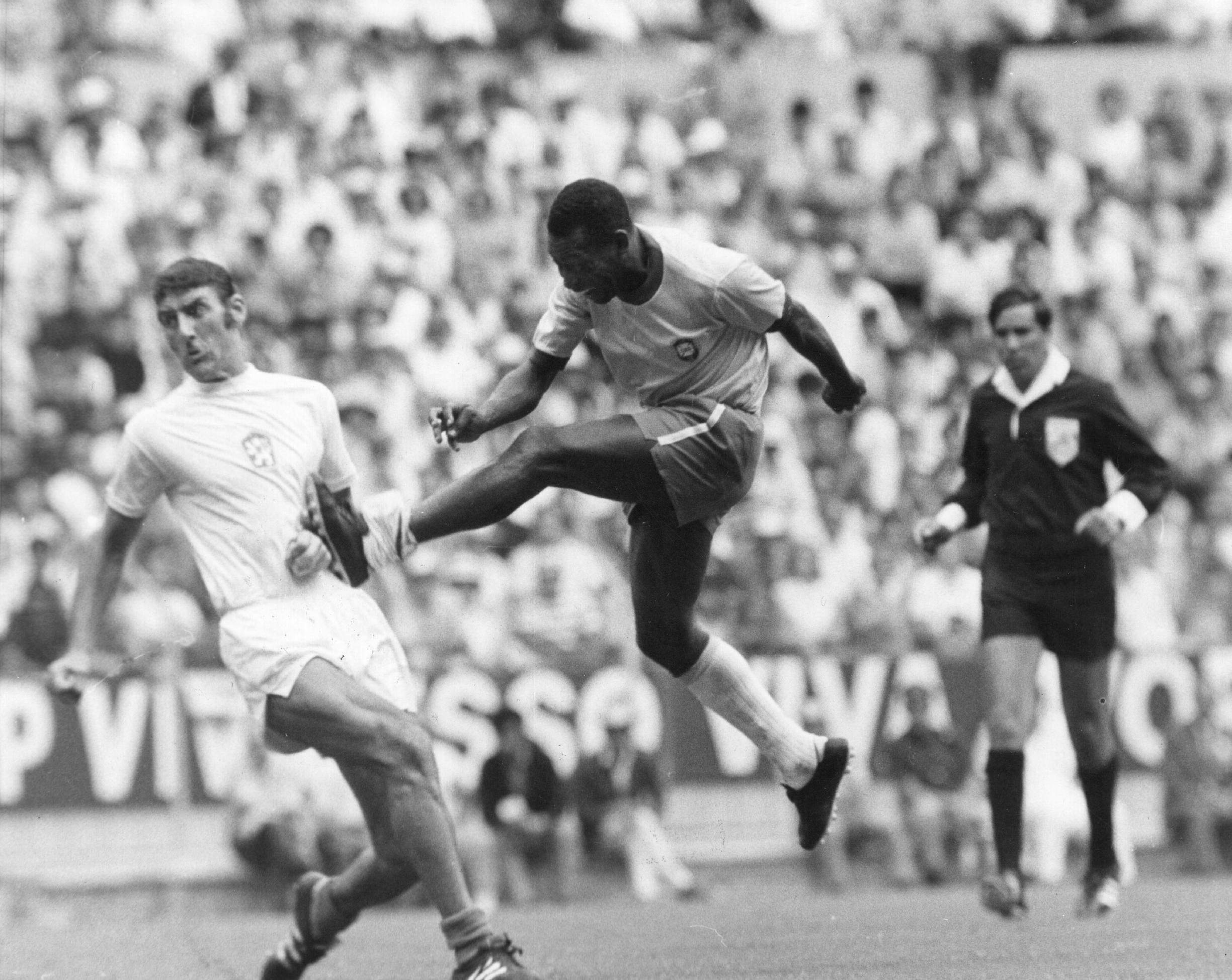As he was ailing in a Sao Paolo hospital a month ago while the big show that he’d helped define grabbed the world’s attention in Qatar, Pelé was described variously in some media outlets as a Brazilian legend. A few “generously” called him one of the greatest footballers in history.
The passing Edson Arantes do Nascimento on Dec. 29, at age 82, ended, in some quarters, the revisionism of his mesmerizing legacy and achievements. Pelé was not just a Brazilian legend or one of football’s greats. He was, as hailed by his countrymen, “O Rei,” the king (in Portuguese). And yes, the king of football. It’s trailblazer, icon and the greatest ever to play the game.
“We talk about somebody being the GOAT of football, and for me there’s only one GOAT, it’s [Pelé],” said 1998 French World Cup winner Frank Leboeuf, using the acronym for ‘Greatest of All Time.’ “He was such a fantastic [player] he was like a myth, he won three times the World Cup.”
Blowing away comparisons of Lionel Messi and Cristiano Ronaldo with Pele, Leboeuf quoted a highly regarded former teammate of Pelé’s, the cerebral midfielder turned journalist Tostao.
“I think Tostao said if you want to have a little bit of Pele, you have to bring the best of Cristiano Ronaldo and the best of Lionel Messi, and maybe then you will have a little bit of Pelé. It says a lot about what Pele represents to all Brazilians, and the entire world in fact.”
An ESPN piece titled “Pelé was the benchmark against whom all other great players are measured,” by the erudite Italian journalist Gabriele Marcotti summed it up: “He was David Beckham before David Beckham. Michael Jordan before Michael Jordan. He was the game's first globalized superstar by whatever metric you choose: commercial, media presence, wages. Oh, and he won three World Cups as well, which didn't hurt.”
Marcotti added, “He was the reference point for the entire world and for its biggest sport. He at once defined the sport and transcended it. He meant something to the obsessives who travelled hundreds of miles to see him train -- let alone play -- with Santos or the Brazil national team, and he meant something to those who have only a vague awareness of the sport.”
Detractors of Pelé’s legacy have pointed to his never having played club football in Europe as a reason he cannot be the greatest ever. Balderdash, since at age 21, Pele was declared a national treasure by his government and forbidden to play for a club outside the country. There were offers of up to $2 million from clubs including Real Madrid that were spurned.
At any rate, from Pelé’s teenage debut in 1958 to his international retirement in 1971 at age 30, Brazil won three of four World Cups. If Europe was that bastion of soccer it wasn’t evident in the sport’s biggest tournament. All Brazil’s World Cup final triumphs were routs.
Others point out that Pelé never won the Ballon d'Or, one of football’s two top individual honors, without noting that until 1995 the award by France Football magazine had gone only to European players. The Liberian George Weah, father of U.S. international Tim Weah, was first non-European to win the award.
Others, in support of Messi and Cristiano Ronaldo’s GOAT status, claim that the modern game’s speed and supposedly better defenses would have been too much for Pelé. More balderdash. Speed is a product of training techniques. It’s not like Millennials or Generation Zers are innately faster athletes.
And as of the supposed better defenses in modern soccer -- another fallacy.
Pelé was kicked out of the 1966 World Cup in England on account of some rough tackling in 2-0 and 3-1 first round losses to Bulgaria and Portugal, respectively. There were no yellow or red cards in soccer then and strikers were at the mercy of bone crunching defenders. It was not until 1970 – Pele’s third and final World Cup triumph at age 29, that FIFA introduced yellow and red cards to protect attackers.
Powerfully built, albeit standing just 5-foot-8 inches, and admittedly no choirboy, Pelé held his own against the rough treatment he got. The question is would have the smaller Messi survived against blood thirsty defenders in an era with no yellow cards?
“His records may fall, as just about all records eventually give way to the march of time,” said ESPN’s Marcotti. “But Pelé's GOAT status at a time when the game was booming and the football world was shrinking will remain in perpetuity.”










